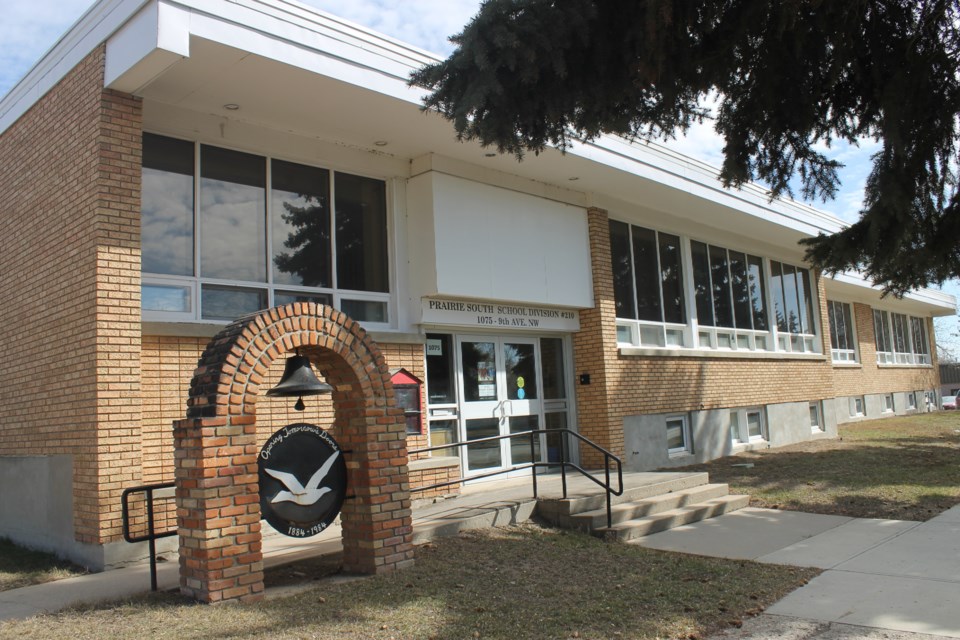Prairie South School Division has been active over the years in supporting the development of its pre-kindergarten early learning programs, which are educational initiatives founded on early childhood research and practical learning elements.
This year, the Ministry of Education is funding eight programs and PSSD is funding nine programs, explained superintendent Amanda Olson.
The ministry determines where a funded program will be established based on census data and access to other high-quality programs in the neighbourhood, she continued. Three- and four-year-old students must meet certain criteria to participate, such as low income, single-parent families, language delays, behavioural problems, and family abuse or neglect.
Families can still submit applications to the program since not all the spaces are full, Olson told trustees during their recent board meeting. Many spots are available because some parents are still concerned about COVID-19.
“Hopefully, in the fall, we’ll see them fill up. I know people are anticipating the application process for the 2022-23 year,” she said.
During the 2020-21 school year, the ministry provided Prairie South with $532,730 in operating funding for its pre-kindergarten programs. However, the division incurred expenses of $1,011,209 — mostly in salaries and benefits — and had a deficit of $478,479.
The ministry’s funding ensures that pre-school kids with special needs can attend these programs with their peers, added Olson. Division administration appreciates its partnership with the ministry and enjoys watching children thrive in a positive learning environment.
There is also a federally funded early learning intensive support program for three- and four-year-olds with high needs. Prairie South received $50,000 in funding in 2019-20, $100,000 in 2020-21 and $100,000 in 2021-22 to support this program.
Meanwhile, kindergarten teachers are responsible for administering an early years evaluation teacher assessment (EYE-TA) each fall that assesses six abilities children should possess. Educators then reassess struggling children in the spring.
Kindergarten educators conducted the fall assessment between Oct. 18 and Nov. 23, 2021 and assessed 473 students. The results showed:
- Awareness of self and environment: 393 students were experiencing appropriate development (green), 77 were having some difficulty (yellow) and three were facing significant difficulties (red)
- Social skills and approaches to learning: 398 youths were green, 69 were yellow and 11 were red
- Cognitive skills: 267 were green, 162 were yellow and 45 were red
- Language/communication: 407 were green, 66 were yellow and three were red
- Fine motor physical skills: 341 were green, 112 were yellow and 21 were red
- Gross motor physical skills: 341 were green, 122 were yellow and 10 were red
These results are consistent with provincial and local results every year, said Olson. Each school receives their overall results and the results of each student. School teams then develop individualized plans for struggling students and provide additional learning opportunities.
The pandemic has harmed fine motor and gross motor skills since children may have spent more time inside and less time participating in sports or other activities that require use and dexterity of hands, she added.
In reviewing the assessment results, trustee Crystal Froese expressed concern that almost half of the assessed youths had trouble with cognitive skills. She also wondered how teachers gauged whether students were at appropriate learning levels.
Cognitive skills is an area of concern each year, but that category usually sees significant growth by June once schools put interventions in place, said Olson. Furthermore, the assessment is a provincial test, so teachers have a rubric to determine whether kids are where they should be.
The next PSSD board meeting is Tuesday, April 5.




